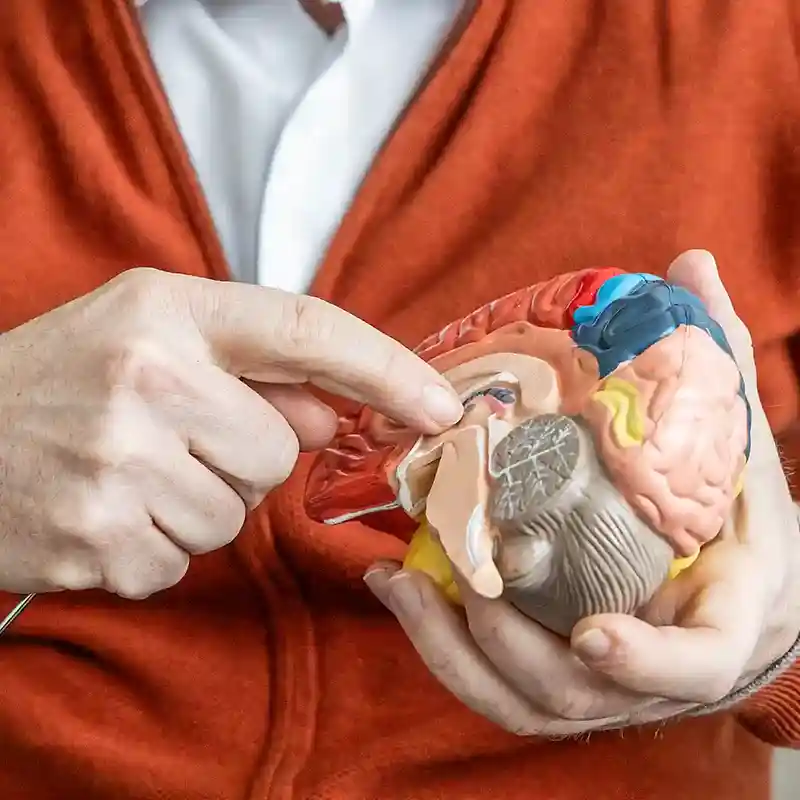
Bulimia
Bulimia is characterised by recurrent binge eating and compensatory behaviour such as vomiting, excessive exercise, taking laxatives and diuretics.
A binge is defined as eating significantly more food in a limited period of time than people usually consume at the same time in similar circumstances.
What is bulimia?
Bulimia is characterised by recurrent binge eating and compensatory behaviour such as vomiting, excessive exercise, taking laxatives and diuretics.
Binge eating is defined as eating significantly more food in a limited period of time than people usually consume at the same time in similar circumstances. (DSM 5, 2014)
During binges, the person experiences the feeling of losing control and not being able to stop.
A vicious cycle of binge eating, elimination behaviour and periods of strict dieting is usually established.
People suffering from bulimia often have unrealistic expectations of their physical image and their self-esteem is greatly influenced by their weight and body shape.
Typically, their weight is in the normal range or slightly above. This characteristic, coupled with the secrecy with which binges and purging behaviour are usually attested, makes the disorder rather difficult to identify.
It can affect men and women, but the percentage in the female gender is significantly higher.
Symptoms of bulimia
The main symptoms of this disorder are:
- fear of gaining weight
- concern for weight and body shape
- negative self-image
- recurrent binges (several times a week)
- self-induced vomiting
- abuse of laxatives and diuretics
- excessive exercise
- damaged tooth enamel (from stomach acids)
- calluses on the dorsal side of the fingers (used to get vomit)
- use of the bathroom immediately after meals
- reduction of normal social activities
Medical complications
- enlarged salivary glands
- renal failure
- heart problems
- gum disease
- dental caries
- digestion and constipation problems
- gastro-oesophageal reflux
- dehydration
- electrolyte deficiency and chemical imbalances
The causes
The causes of bulimia are not completely established. Predisposing and precipitating factors are identified that make some people more at risk in developing this disorder.
Psychological and emotional conditions, socio-cultural context, low self-esteem, perfectionism, dissatisfaction with body shape, lack of assertiveness and social skills increase vulnerability and influence eating behaviour.
Negatively experienced life events such as the interruption of an emotional relationship, a bereavement or major changes in the person's life may contribute to triggering the eating problem.
Some research has also found imbalances in brain levels of serotonin.
How can we help you?

Cognitive Behavioural Therapy 'Enhanced' (CBT-E) is considered by international research bodies to be the treatment of choice for eating disorders.
Therapy phases include:
- regulating eating habits
- cognitive restructuring perfectionism and body image
- emotion education and emotional regulation techniques
- self-esteem training
- assertiveness and social skills training